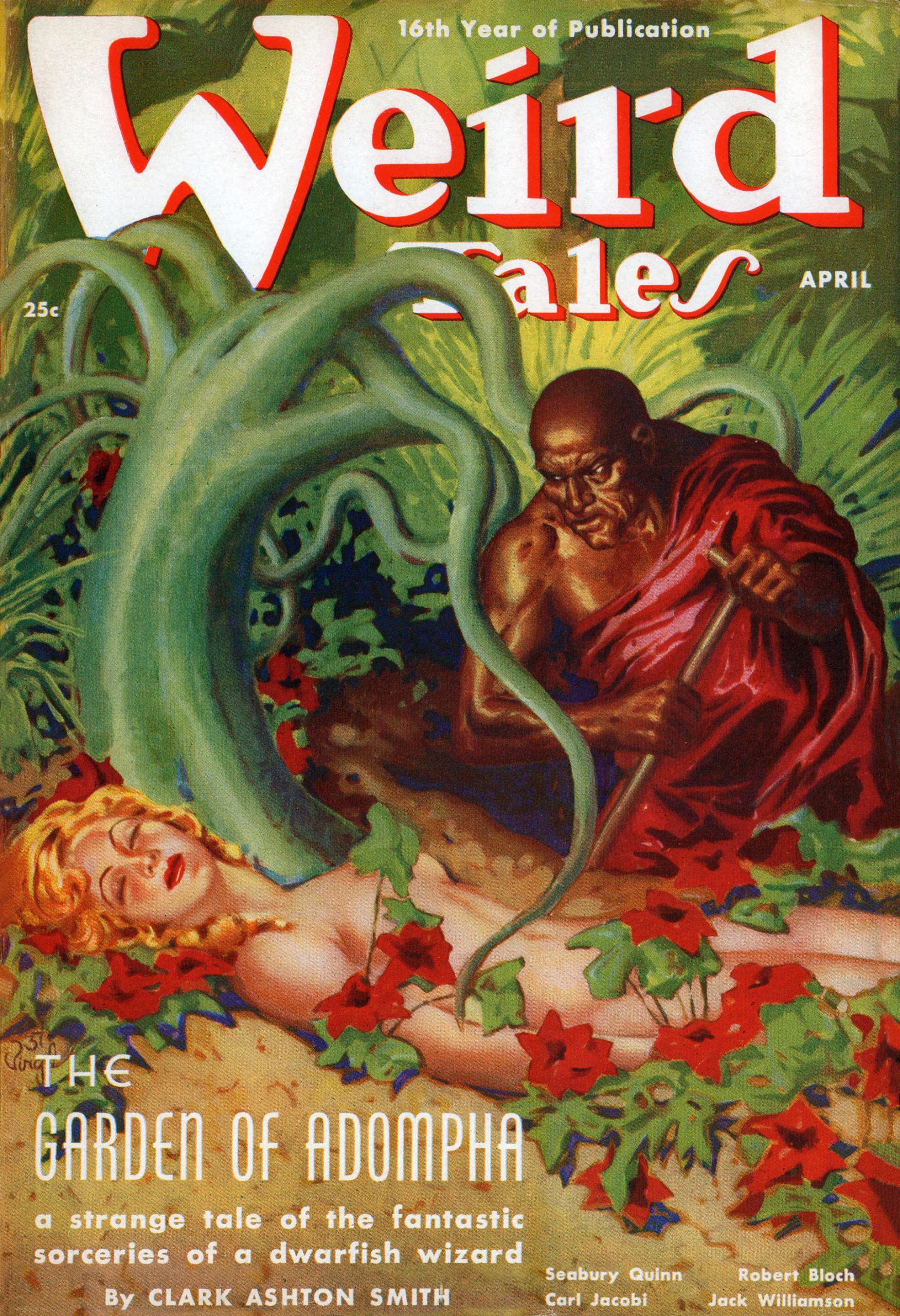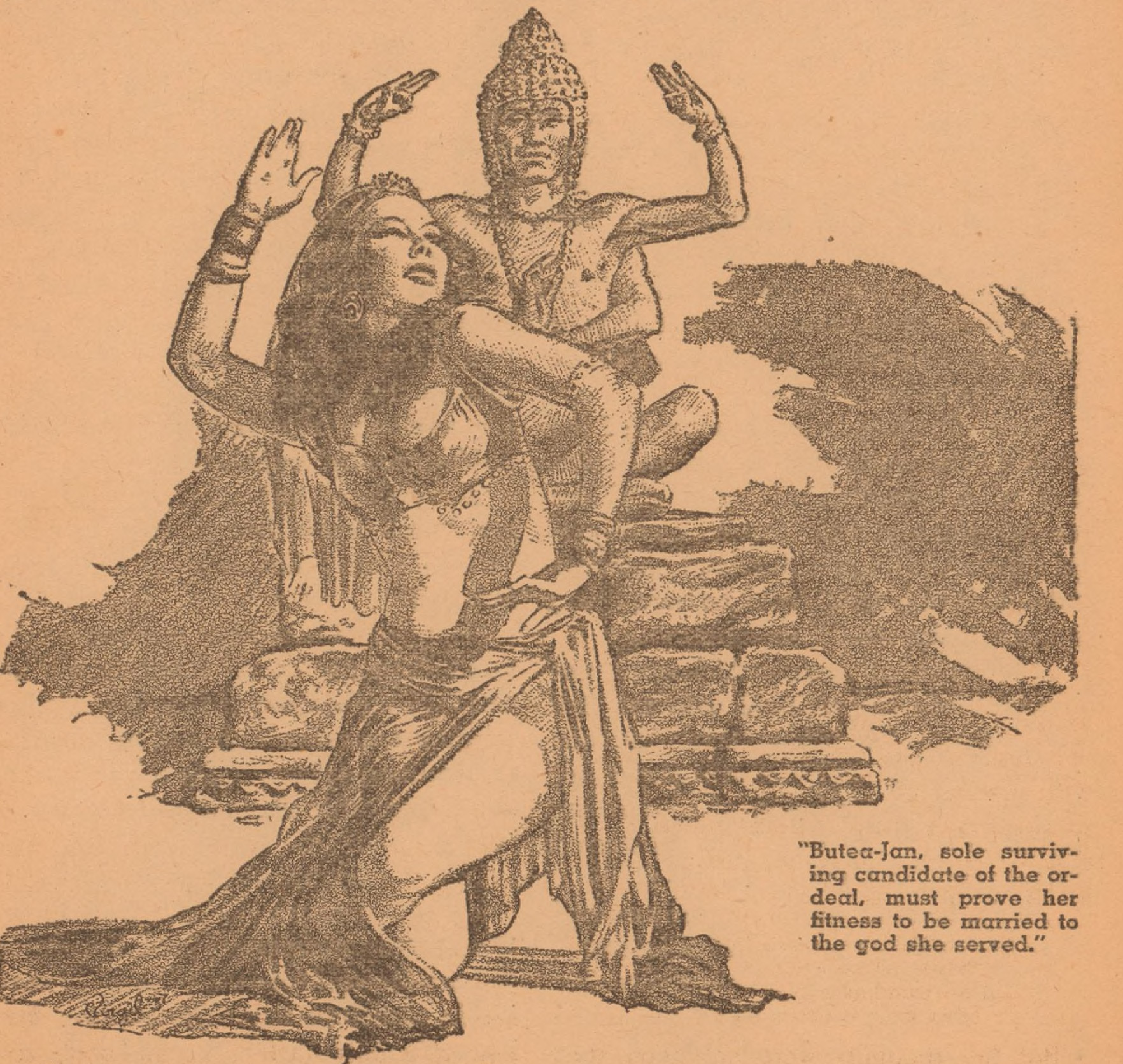
Virgil Finlay was busy on this the April 1938 issue of Weird Tales The cover painting appears to illustrate Clark Ashton Smith’s “The Garden of Adompha,” one I had not previously read and which my attention was drawn by twitter user Perry Ruh:
You can read the story in the Internet Archive’s copy of the issue or, if the yellowed woodpulp is too much of a strain on the eyes, you can also read the transcribed version at Wikisourse.
Finlay was also busy on this this issue with interior illustrations, like this one for Seabury Quinn’s story “The Temple Dancer.”

It was a heck of an issue, containing not just these stories but others by Robert Bloch, Jack Williamson, Max Brod and Nathaniel Hawthorne (the last two reprints, obviously) and poems by both H.P. Lovecraft and Robert E. Howard! It is available to read and download at the Internet Archive.

I just read “This Crowded Earth” by Robert Bloch. Written in 1958, the story starts in 1997~1998 where he has the population right around 6 billion.
Quite accurate prediction there, but like the majority of authors writing overpopulation stories he had far too low a population for the massive amount of building space he posited.
Six billion people in apartments barely larger than a bed, in 90 story buildings, just doesn’t work. Not even if you (as Bloch did) leave out the mountains and some other places not amenable to skyscrapers, not even if you leave some open spaces for agriculture.
It’s basic math, authors! Just run the numbers and size things appropriately to get Kowloon Walled City density, or higher, over most or all of a planet. A hint, you’re going to need considerably more than a trillion inhabitants to make it work.
Bloch died in 1994, with the human population around 5.6 billion. Makes me wonder what he thought of his population number prediction being on target, but not the crowding etc?
This cover definitely needs a remake for modern eyes. 🙂